It is Day 12 of a Pathfinder course. We are camped on a smooth curve of granite above a free-flowing river on the Canadian border. Our group has just finished an invigorating morning, honing whitewater canoeing skills in frothy whitewater. Each boat team works to plan a route and choreograph their boat through surging river obstacles. The river is boss. It can quickly take command of canoe teams without a clear plan, cohesive paddling or a misaligned confidence.
Back on shore, it is time for a less adrenaline-packed exploration of the most pressing questions. Today’s topic is how we define our own success and hold ourselves accountable. It is one piece of a 30-day Pathfinder course intentionally focused on exploring values and discovering purpose.
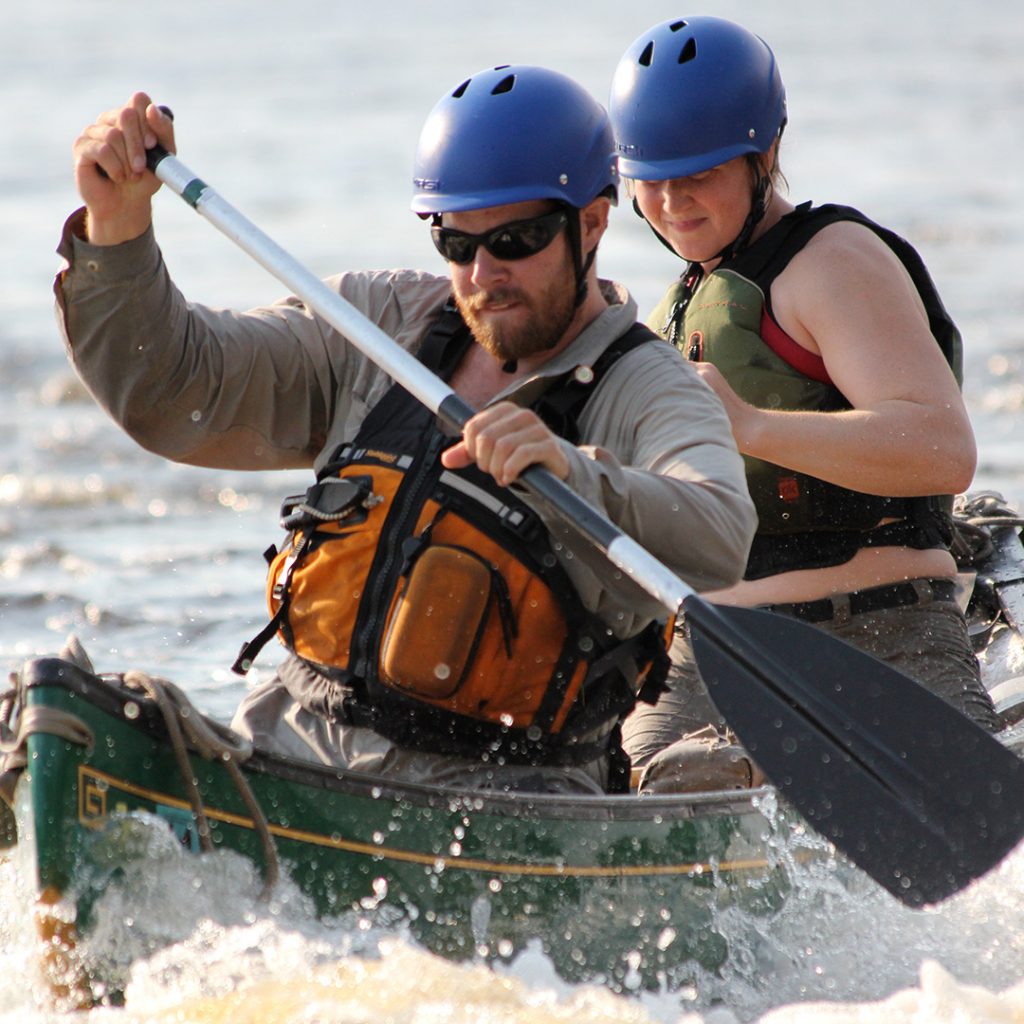
Students work together on a canoeing mission on their Pathfinder expedition. Photo by Caroline Callahan.
A Pathfinder course provides the opportunity for young adults, ages 18 to 25, to chart a path, acquire the motivation to begin their journey, the resiliency to recover from setbacks and the skills needed to achieve their goals. That might sound rather ambitious, so let’s take a closer look at the secret sauce of a Pathfinder expedition.
1. A Fresh Perspective
Sometimes, just being away from home can offer crystal clear perspective. Radically changing locations will likely provide new insights. Sometimes this distance is needed in order to discover a new lens or look at a situation differently.
“When I go into the wilderness, everything in my life is put into perspective. When it’s just you and your group, everything else falls away. You can take a critical eye to your life and use the challenges around you to find your passion or direction.” – William, age 19
2. The Expedition Mentality
The reality of a rugged wilderness expedition is that it demands the daily diligence and the contributions of every member in order to succeed. Over and over again, Outward Bound students remark that “I learned I could do more than I thought I could.” Striving, especially in the face of real adversity, creates strength of character. Students learn grit and perseverance and how to work together. Nature is a tough-love teacher, and its unpredictability teaches people to be more resourceful and more grounded in themselves. The course culminates with an autonomous student-driven final expedition. The Final Expedition of a Pathfinder course provides students with the opportunity to be responsible for caring for themselves and each other in the backcountry. Students work as a team and utilize the skills they have acquired to solve problems and make group decisions, while Instructors maintain overall risk-management for the group with check-ins and advanced scouting.
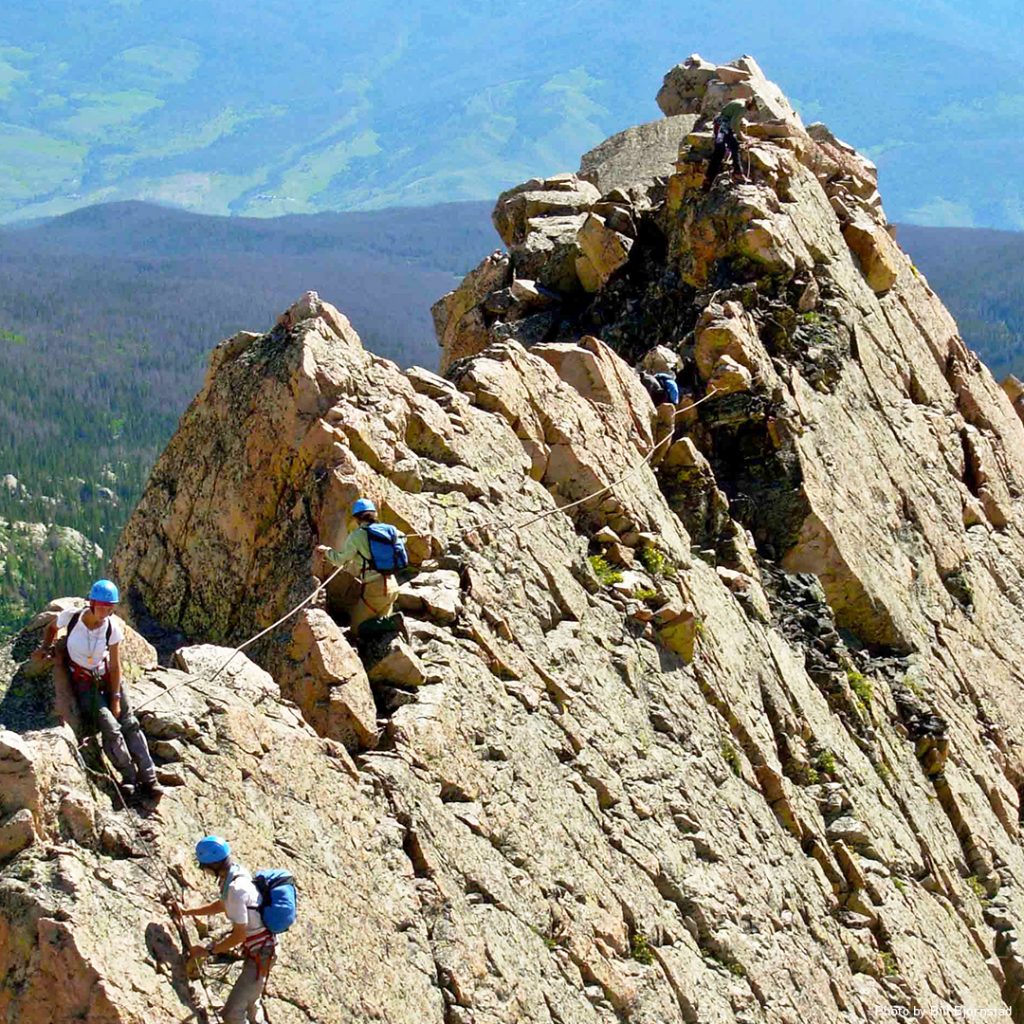
Students learn grit and perseverance and how to work together on a Pathfinder expedition.
3. Talented And Supportive Instructors
Our Instructors will challenge, support, inspire and strive daily to help students discover their unique talents, strengths and capacity. They are seasoned field staff with ample life experience to coach others through life’s challenges and transitions.
4. A Supportive, Inclusive Community
It is the intention of every Outward Bound course to create an inclusive and supportive community that will be there when a student is down and nudge his or her when it is needed. For many, groups can become like an extended family. Together, students learn to strive for a growth-mindset; believing in their potential, thriving on challenge and viewing failure optimistically.
“This expedition has given me more than I could have ever expected or wished for! I have never been as motivated as I am today. Thank you to all of the staff and my crew members for being so supportive and nurturing during our course. Words will never be enough for all that I have learned during the physical and mental challenges on course. I am certain that there are no limits to what we are capable of and will never forget the pillars nor the valuable skills we were taught.” – Estefane
5. How to Leverage Strengths
There are several opportunities for students to explore and discover their strengths, from a strength-based assessment tool to rotating leadership responsibilities throughout the course. Individual and group conversations are orchestrated by Instructors who also provide coaching through growth areas. Students finish the course knowing their strengths and practicing the skills to capitalize on them.
“Pathfinder led me to further involvement with Outward Bound and put me on the path to becoming an instructor, but whether outdoor education is your interest or not – Pathfinder courses offer powerful tools to re-imagine your life and redefine what you’re capable of. I wanted to believe that everyone was capable of leadership, but I did not fully believe this about myself until this course.” -Yoshie, age 24
6. The Importance Of Quiet Reflection
Every course prioritizes daily reflection time. Some is unscripted. Other times, there are journal prompts. All of it is designed to meet students where they are, cultivate reflection on values, purpose and a direction in which to strive. A multi-day Solo experience can be a pivotal point on a Pathfinder course, when students can contemplate, craft a personal mission statement and ultimately, draft goals and a plan for moving forward after course. This plan emerges from the foundation of many previous conversations and activities throughout course.
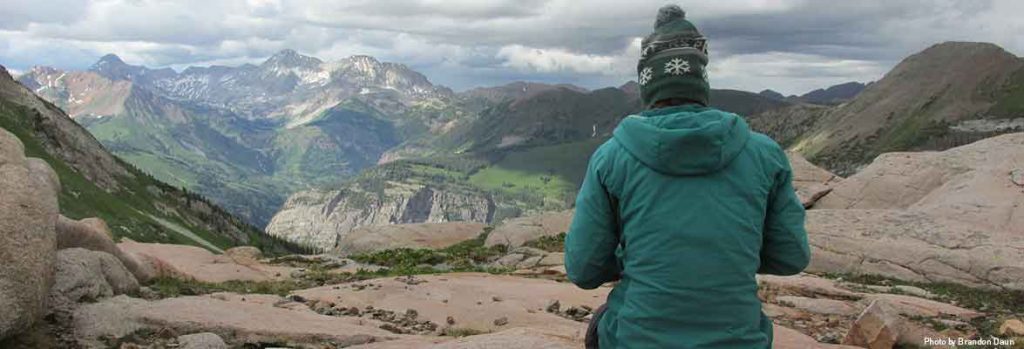
Quiet reflection is an important component of every Pathfinder expedition.
“Pathfinder has taught me to embrace uncertainty and accept that doing a conventional safe life course will never be fulfilling enough for me.” -Grace, age 18
7. Getting Involved
Words only go so far. An expedition is hard work and it takes everyone pitching in. Learning new skills, striving for mastery, discovering the value of excellence—all are components of crafting a functioning expedition. With real consequences for a poorly pitched tent or not enough firewood for dinner, students learn the consequences of poor planning and bad habits. Failure is a fabulous teacher.
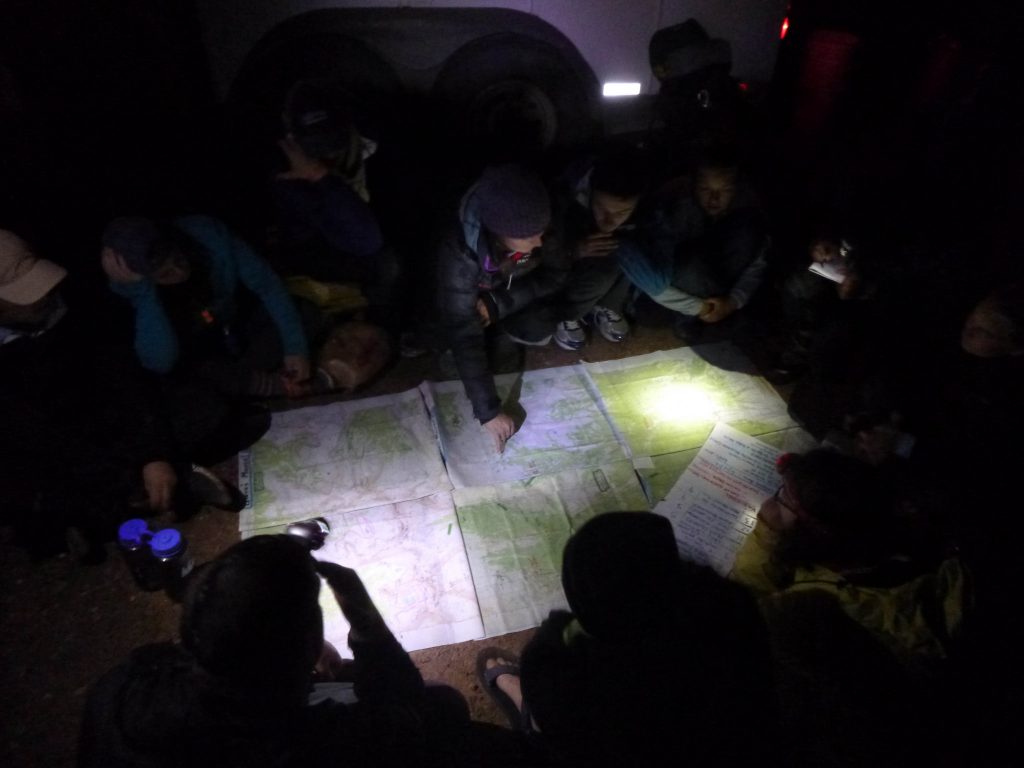
When things don’t go as planned, students learn to re-assess and work together to figure out next steps. Photo by Katie Gregory.
“A year and a half out of college I went to Outward Bound’s Pathfinder program feeling lost and anxious. I was excited for a break from the stressors of home and while I was optimistic about enjoying the experience, I vastly underestimated the life change I was about to experience. The Pathfinder curriculum is powerful because it offers practical life tools and then allows you to practice those skills in a wilderness setting where your survival depends on your ability to use those skills effectively alongside your fellow travelers. It is both the safest and the riskiest place to work on becoming your best self, because the consequences and the support are both very real.”
8. A Physical Practice
Expeditions are hard work. Students gain strength of both body and mind by traveling together under their own power. Learning to measure physical achievements and then continuing to build on them can be a powerful metaphor for striving for less tangible goals. For example, “Today I portaged a canoe 25 rods. Tomorrow, I will strive to carry the boat 50 rods.” Student learn to build on the momentum of small victories.
9. Goal Setting
Students will learn a goal-setting framework. It is common to have a daily communication or leadership goal to strive for on course, continually expanding the scope and potential of pertinent life skills. By course end, students will have created a life map with goals spanning one month to two years, coupled with the confidence to make it happen.
“Before I came here, I felt that my life was leading me nowhere (which it certainly was), but being here has lifted my spirits enough to know that, while I may not know where my path may lead me in the end, I know which direction to go….forward.” -Ian, age 21
10. Intentional Conversations
From connections with other students to focused coaching conversations with Instructors at pivotal points, more than one courageous conversation takes place throughout a Pathfinder course. At the end of course, students have an opportunity to tell their family members about their experience, explain their goals and their action plan for after the course. These powerful conversations celebrate the hard work of the expedition and lay the groundwork for moving forward in life.
“Before this course I felt as if I had no direction and no control in my life. Now Outward Bound has helped me find myself and retake control of my life and the downward spiral it was in.” -Hagen, age 20
11. Practicing Gratitude
Living simply, traveling in a small group, sleeping under the stars–it can offer an incredible perspective on the lives we have created for ourselves. Appreciations and gratitude for the small things, like a dry pair of socks or a hot drink after a day of hiking in the pouring rain, can offer incredible perspective.
12. Asking The Tough Questions
Daily debriefs and feedback sessions are complemented by a contemplative dialogue designed to increase self-knowledge and awareness. A sample of prompts that might be explored on a Pathfinder course include:
Who am I? What do I value? What am I good at? Where do I want to go? What skills do I need to weather the journey? Do my actions align with my values? How do I want to respond to failure? What does it mean to thrive? What do I want to strive for?
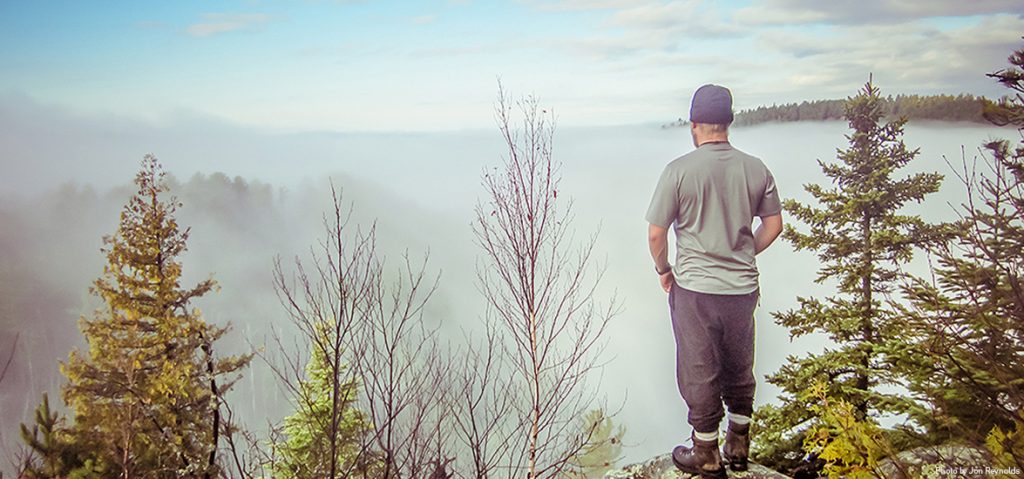
Questions are an important part of figuring out who you are, and Pathfinder expeditions allow time and space for that.
As for our group that just finished whitewater paddling, the question of the day is: If you could design your own report card, what categories would you choose to grade your success?
These were their responses:
- Live by my values
- Do things for the right reasons
- Gratitude
- Speak up above peer pressure
- Enthusiasm and zest for life
- Integrity
- Strive to grow
- Ability to create my own happiness
- Daily self-care
- Enjoy the time I have on this planet
- Humility with both triumph and defeat
These categories became touch points that the group used throughout the rest of their course to measure their success and plot their development, each on a quest to discover their own path forward with renewed confidence.
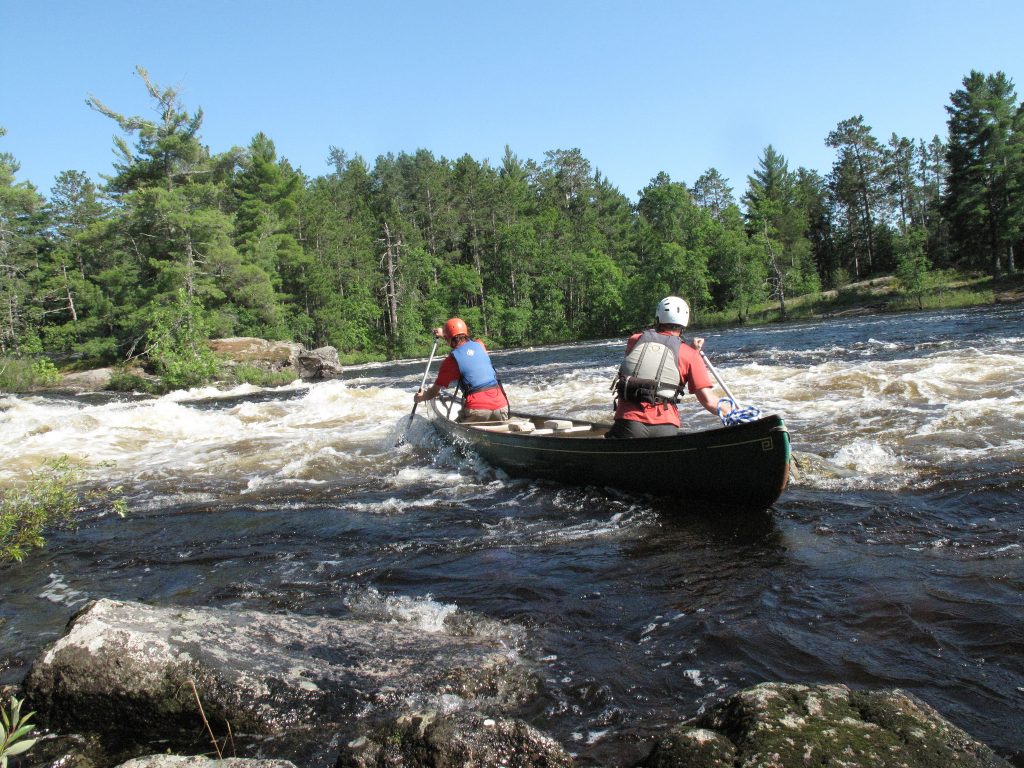
Students return home from Pathfinder with renewed confidence and direction. Photo by Annie Socci
Bonus!
Kurt Hahn’s Report Card
Outward Bound’s founder, Kurt Hahn, pioneered a holistic approach to education, notably at The Gordonstoun School in the 1930’s amidst the Nazi uprising. Perceiving decline in the society of the day, he aimed to foster in young people the qualities of skill, compassion, honesty, initiative, adventure and a sense of service to their fellow beings. He is famous for a rather unconventional report card, which include such categories as:
- Sense of justice
- Ability to follow out what s/he believes to be the right course in the face of discomforts, hardships, dangers, mockery, boredom, skepticism, and impulses of the moment
- Ability to plan
- Imagination
- Ability to deal with the unexpected
- Conscientiousness in everyday affairs
If you could design your own report card, what categories would you choose to grade your success?
About the Author
Theo is a long time outdoor educator who has been involved with Outward Bound for over fifteen years. She serves as a course director and hiring manager at the Voyageur Outward Bound School. She has led outdoor trips throughout the US and Canada for the past 25 years. Previously, she directed outdoor programs for Cornell University, focused on developing undergraduate outdoor skills and leadership experience. Theo balances a penchant for planting ambitious gardens and growing local food with winters as a dog sledding guide. She holds a degree in Landscape Architecture from Cornell University and writes from the edge of the Boundary Waters wilderness in Minnesota.
OTHER POSTS YOU MAY LIKE
Read More
Read More
Read More




